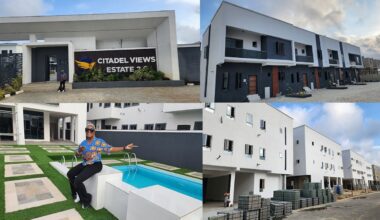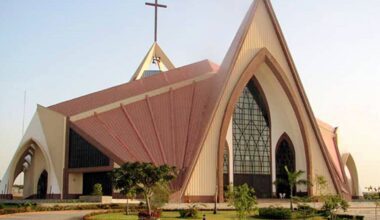Many Nigerians still ask the same question when filling out online forms: “What’s my postal code?” If you’ve ever found yourself stuck during registration or ordering something online because you don’t know your postal code, you’re not alone.
In this guide, you’ll learn everything you need to know about Nigeria’s postal codes, how they work, and the complete list for every state and the FCT.
Understanding Nigeria’s Postal Code System
Nigeria’s postal code system is managed by the Nigerian Postal Service (NIPOST) and follows a six-digit format. Each digit carries a unique purpose:
- First Digit: Represents one of Nigeria’s nine zones
- Next Two Digits: Identify the dispatch district within that zone
- Last Three Digits: Pinpoint the exact location or delivery area
This structured format helps streamline mail sorting, dispatch, and delivery processes nationwide.
Why Is Knowing Your Postal Code Important?
Knowing your correct postal code is more useful than most people think. Here’s why it matters:
1. Online Registrations & Applications
Most digital platforms—whether for JAMB, job applications, or account creation—require accurate postal codes for verification and profiling.
2. E-commerce & Delivery Services
From Jumia to Konga to Amazon, delivery systems rely heavily on your postal code to route packages correctly and on time.
3. Banking & Official Correspondence
When filling out bank forms or government documents, your postal code is often required to verify your address.
4. Job Location Preferences
Some job portals may ask for your postal code to suggest opportunities or verify your proximity to a location.
Nigeria’s Postal Codes By Region & State
Below is the official list of postal codes for all 36 states and the Federal Capital Territory (FCT):
Federal Capital Territory (FCT)
- Abuja:
900001
South-East Region
- Abia State:
440001 - Anambra State:
420001 - Ebonyi State:
840001 - Enugu State:
400001 - Imo State:
460001
South-South Region
- Akwa Ibom State:
520001 - Bayelsa State:
561001 - Cross River State:
540001 - Delta State:
320001 - Edo State:
300001 - Rivers State:
500001
South-West Region
- Ekiti State:
360001 - Lagos (Island):
101001 - Lagos (Mainland):
100001 - Ogun State:
110001 - Ondo State:
340001 - Osun State:
230001 - Oyo State:
200001
North-Central Region
- Benue State:
970001 - Kogi State:
260001 - Kwara State:
240001 - Nasarawa State:
962001 - Niger State:
920001 - Plateau State:
930001
North-East Region
- Adamawa State:
640001 - Bauchi State:
740001 - Borno State:
600001 - Gombe State:
760001 - Taraba State:
660001 - Yobe State:
320001
North-West Region
- Jigawa State:
720001 - Kaduna State:
800001 - Kano State:
700001 - Katsina State:
820001 - Kebbi State:
860001 - Sokoto State:
840001 - Zamfara State:
880001
Quick Tips
- Always double-check your local government area (LGA) to get the exact postal code for your district or ward.
- If you’re expecting a delivery, use accurate street names and postal codes for better tracking and successful dispatch.
Frequently Asked Questions
Are postal codes the same as ZIP codes?
Yes, in Nigeria and many countries outside the US, the term “postal code” is used instead of “ZIP code.” They serve the same purpose.
Can two locations have the same postal code?
Yes, especially in rural or undeveloped areas, a single postal code can serve multiple nearby locations.
Where can I find my exact local postal code?
Visit the NIPOST website or ask at your local post office for a precise match by street or town.



